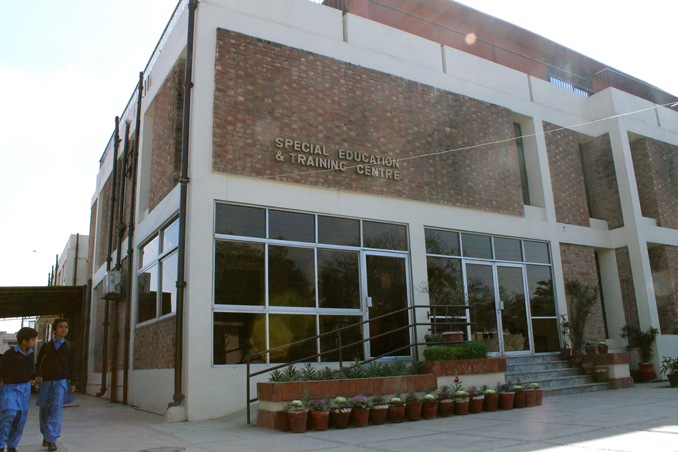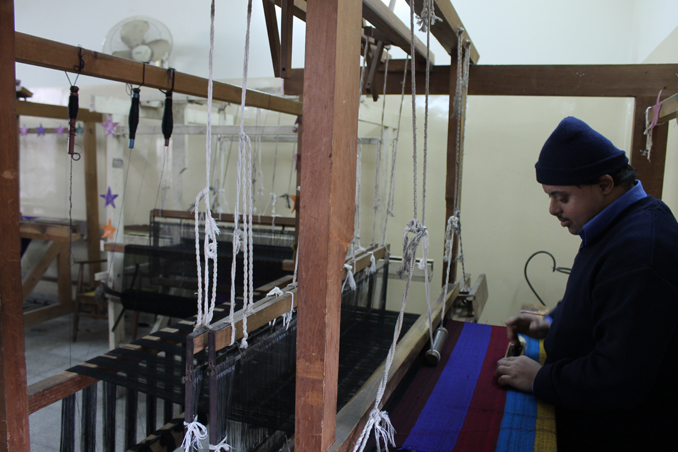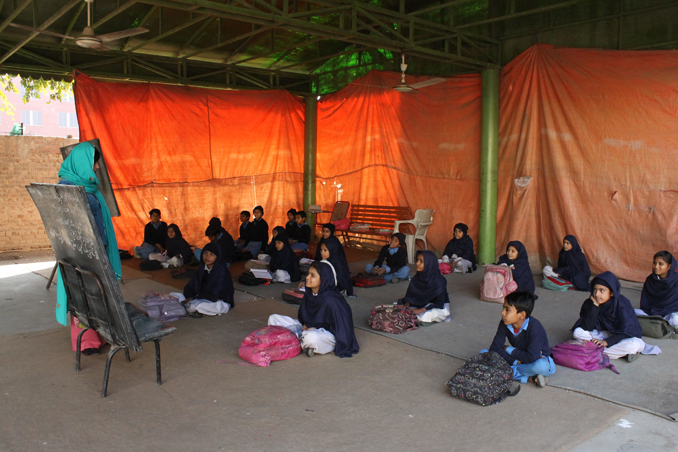Written by: Aleeza Rasool - Posted on: February 12, 2014 |  Comments
Comments
Google Translation: اُردو | 中文
“In 1976 when my husband and I came back to Pakistan, most of our family, friends and colleagues expressed surprise at our decision. Their astonishment and discomfort were not without reason for at that time there was little or no awareness in Pakistan about psychiatry - especially child psychiatry. Nobody thought that children could have any problems,” relates Dr. Khalida Tareen who is Professor (retired) of Child and Family Psychiatry, King Edward Medical College and one of the founding members of the Special Education and Training Centre located in Johar Town, Lahore. “Despite the odds, we still decided to come back, owing to the overwhelming desire of giving back to our country and serving our people.”
Following their arrival in Pakistan, Dr. Tareen and her husband, Dr. I. A. K. Tareen started laying the groundwork for creating awareness and making available the resources required for people with mental diseases and illnesses within Pakistan. Their first step was the establishment of the National Society for Mentally and Emotionally Handicapped Children in the year 1979. The aim of this society was to make people realize that the needs of the handicapped are the responsibility of the community as a whole (Struggle for a Bright Future). Further impetus to the efforts of this society came in 1981 when Pakistan, as a member of the international community, joined hands with the rest of the world to recognize the Year of the Disabled (Struggle for a Bright Future). Some time later, a Special Education and Training Centre was established within a two bedroom, rented premises in central Lahore. The objective of this center was to provide educational, vocational and habilitation services to children with learning disabilities (Struggle for a Bright Future). It also provided training to teachers for dealing with children with disabilities. Dr. Tareen states, “Within no time the news of this school spread like wildfire and suddenly there was a huge influx of disabled children into the school.” This huge demand on available resources eventually led the Society members to construct the center’s very own, purpose-built building in Lahore in the year 1999.
 |
Presently, this center located in Johar Town, Lahore, is one of its kinds. The vision behind its establishment is to enable mentally or physically unfit children to support themselves and their families by providing the children with vocational training. Woodcraft, cloth weaving, embroidery, beadwork and block printing are some of the skills, which children learn in the sheltered workshops of this center. Intricately and beautifully carved wooden trays, decorative pieces, vases, block printed tunics, painted handbags, sewing kits and dresses made by the students, leave one with a lack of words for praise. Dr. Tareen relates that after having acquired adequate training at the center some children go out and get jobs in the market. Hence, the skills these children learn at the center open doors to social mobility and integration into society for them.
Dr. Tareen also relates that children at the center are very adept at sports as well, and many students have participated in the Special Olympics as well as other sports competitions at the national and provincial level within Pakistan. She boasts that her students have been to the United States, Shanghai, Australia and Ireland for representing Pakistan. She explains that because the majority of the children at the school belong to the disadvantaged section of society, travelling abroad and representing their country in international competitions is a big success for them and their families.
 |
Another endeavor that the Special Education and Training Centre is involved in, is the Jhuggi Madrassa (Tent School). This project was initiated for the purpose of educating and grooming children from the slum which occupies the land surrounding the center. Due to the limitations of space these children receive education in make shift shelters (Chappar) just outside the school (Struggle for a Bright Future). “Previously, children were receiving education up till grade 5. But, now this has been extended to grade 8,” announces Dr. Tareen proudly. According to her, the success of the Jhuggi Madrassa project lies in the fact that these children who previously used to roam around on roads and play in muddy fields all day, now have something productive to indulge in. Once they learn to read and write, their parents who themselves are uneducated feel that their children have a better chance in life. “Some students I am still in touch with have gone up to completing their matriculation, graduation masters and MBAs,” states Dr. Tareen.
 |
The above stated are just some of the achievements of Dr. Khalida Tareen. She and her husband have done and are still doing a lot more for Pakistan. Dr. Tareen has served on the World Health Organization’s (WHO) advisory panel for mental health. She is also one of the founding members of the World Psychiatric Association’s section on Mental Health in Women. Moreover, she and her husband organize various seminars in Pakistan with the aim of creating awareness and disseminating information about mental illnesses. She says that the purpose of these seminars is to tell people that mental illnesses have a cure and it is not right to ostracize people suffering from these conditions from mainstream society, “This stigma must go away!”